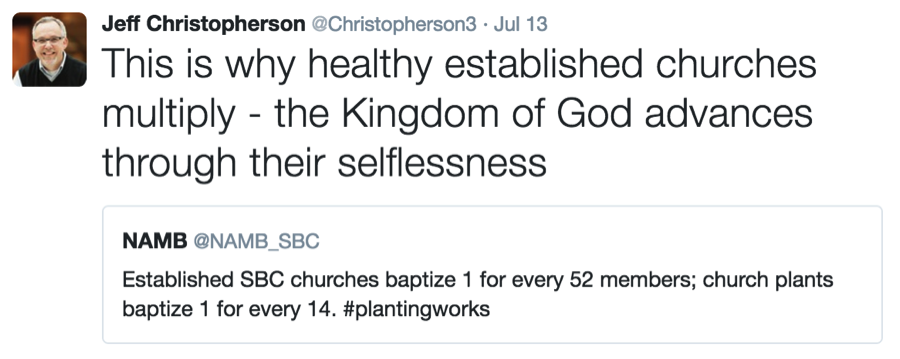
The process of gathering a launch team is not an easy task. With the right training almost anyone can plan the launch, mail appropriate advertising, and prepare for people to come on the launch day. But molding an effective launch team is another story. There are several ways to find such people committed to starting a new church with you.
1. Recruit Members from the Sponsor Church
One possible source for launch team members is a sponsoring church, which can appeal for volunteer families (sometimes called “extension members”). Bob Roberts, pastor of Northwood Church and founder of GlocalNet, has started over 180 churches out of his church (and many more in partnership with GlocalNet). Their local church is directly involved in training, mentoring, and coaching twenty-five church planters each year. In several cases, he has sent out members to start these new churches. Bob explains:
When we sponsor a daughter church, each church is different. Generally for a new plant, sending out three to eight families from our church is the most. We sometimes send staff as well. We don’t recruit this much because we have found that core groups from established churches can slow a plant down. A planter will start a small group and multiply it while being an intern at Northwood. If they can’t do that, they can’t plant a church. I give them a 100 percent fishing license with those people.
This presents both positives and negatives. A strong positive is that the planter has a launch team almost overnight, and the length of start-up time decreases considerably. The church can begin services while developing one-on-one relationships. In addition, the planter usually finds that these volunteer families are solid believers who can assist immediately in the development process.
On the negative side, not all of these people come from strong churches like Northwood Church! These “experienced” believers may have strong feelings about the form of worship, leadership style, and other matters. Such convictions, if different from the vision of the church planter, can create significant conflicts in the early development of the congregation. These conflicts may quickly put at risk the continuation of financial support from the sponsoring church. We recommend using this recruiting method for launch team development only if the sponsoring congregation is highly similar in philosophy and style to the new church and the planter and the context of the new start are similar to the context of the sponsoring church.
2. Develop a SWAT Team
In settings where extension members are unavailable or their use would be unwise, several other means for recruitment are possible. One alternative has been termed a SWAT team, an acronym for Servants, Willing and Temporary. SWAT team members commit themselves to the new church for a short time, usually six months. These volunteers staff the nursery, teach small groups, serve on set-up teams, or fill other roles in the first months following the launch.
[Read more…] about How Do You Find Launch Team Members?




